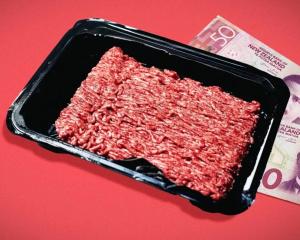
A bright global meat and livestock outlook was given by Global Agritrends founding partner Brett Stuart and analyst Simon Quilty in a virtual presentation at the Red Meat Sector Conference in Christchurch.
Global beef prices were at record levels in June with global sheepmeat demand prices rising 68% since a November low in 2023, but still off 2021’s record returns.
Global Agritrends forecasts lamb at $10 a kilogram in August could rise to $10.50/kg in mid-2026.
Mr Quilty said the record beef price index at 139.4 in June was at sustainable levels.
"We are at the start of this journey, not at the end."
He said the sheepmeat sector was a similar story, within a "millisecond" of record prices.
Both sectors could expect to reach new high prices next year with sheepmeat first to peak followed by beef, he said.
New Zealand was at this stage facing an extra 10% tariff for beef entering the United States from President Donald Trump’s tariff policies, zero tariffs into China and 21.6% into Japan, 13.3% into Korea and zero tariffs in Taiwan, Indonesia and other markets.
For sheepmeat the only market with tariffs was North America.
Mr Stuart said they had been following Mr Trump’s policies closely since his election to advise clients disrupted daily in their trade.
"There’s probably never been a more extraordinary time in the global beef and sheep industry," Mr Stuart said.
He said exporters were probably best to panic slowly as Mr Trump’s tariff "bark" had been much worse than the bite.
"Let’s see how this plays out. Early in 2025 we had a lot of Canadians that were terrified as they export six million pigs to America and over a million cattle to America every year. They were terrified what tariffs would do to disrupt their industry and ultimately they never received tariffs."
He said Mr Trump had been largely unwilling to "lay the wood" to people.
This was seen by his offering extensions, a tariff pause and continuing to push deadlines out in response to opposition in his home country.
The bulk of key agricultural markets in Canada, Mexico, Japan and Korea are tariff free.
This could change on the August 1 deadline and while world leaders wonder if there will be another pause Mr Trump has said there will be no more extensions.
China’s ban on US beef remains since March and Canada’s retaliation tariff on US pork continued.
Mr Stuart said trade tariff talk had been very quiet for Australia and New Zealand and perhaps the best strategy was to avoid Mr Trump’s gaze.
Brazil was the No 1 supplier of 175 million pounds of beef to the US in May, but was facing Mr Trump’s proposed 50% tariff on all of its imports on top of a 26.4% tariff on its beef.
"There’s also the potential for retaliation against US agriculture ... so agricultural becomes a real key pawn in the global trade war."
As Mr Trump’s tariff agenda moves forward to an August 1 deadline, Global Agritrends’ identified risks include Mexico potentially retaliating against US pork, dairy, poultry and beef.
Other retaliation against US exports was possible from Canada, while Japan and Korea are considered unlikely to respond as they could not survive tariffs of about 30% proposed by Mr Trump.
Potential wins for the US include the possibility of Japan trimming a tariff at 23% currently for US beef, and Australia’s decades-long restrictions on US pork and beef being lifted, while new access agreements have been made with Philippines, Vietnam, United Kingdom and others.
"Thus far I would have to say Trump does not have a lot of success to show. He’s made a lot of noise and a lot of threats."
China’s ban on US and Canada beef had left only Australia as a major source of grain-fed beef as it scrambled for grain-fed beef supply.
As a result China had become the largest beef importer by a wide margin, up 25% this year.
Mr Quilty said the concern for Australia and New Zealand was Brazil would fill this supply as it could step up production quickly.
Global Agritrends still sees higher prices for New Zealand could result, with Brazil unlikely to fill our other markets.
The risk of China putting in a global import quota instead of country by country at the end of a safeguard investigation in December alleging imported beef harmed their domestic beef prices had yet to pan out.
That would be to the detriment of Australia and New Zealand he said.
The 2025-26 year was likely to bring the tightest beef supplies and record prices as restocking begins in key nations, with prices moderating in 2027-28.













